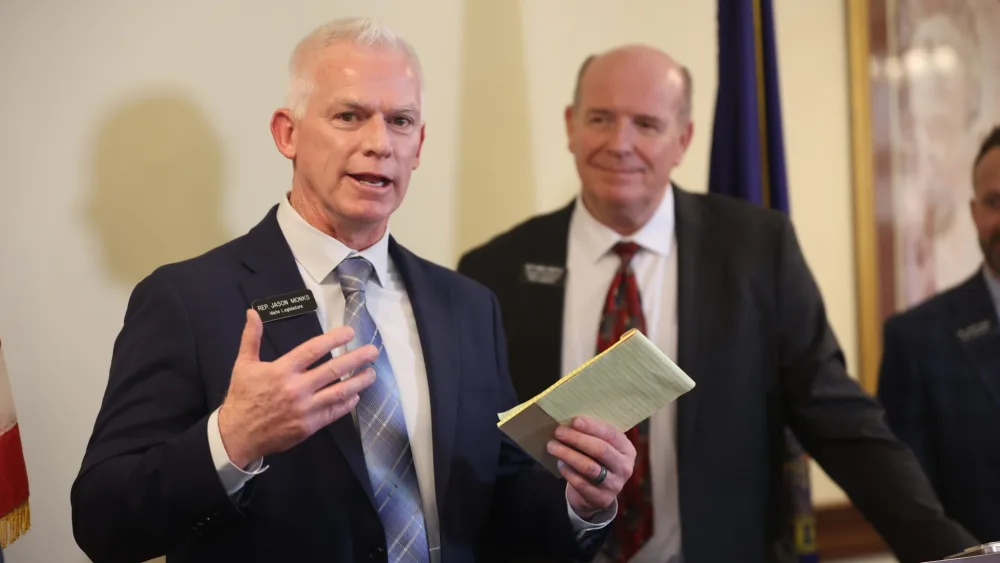OLYMPIA, WA – Medicare enrollees in Washington may soon need to get additional approval before undergoing some medical procedures, under a controversial new program the federal government will test in a half-dozen states.
The 6-year pilot program begins Jan. 1 in Arizona, New Jersey, Ohio, Oklahoma, Texas and Washington, and will rely on artificial intelligence to help decide whether certain care is eligible for coverage.
It’ll be voluntary for doctors to participate, but critics still see the initiative as a sign of the Trump administration creeping toward Medicare privatization and are unsettled by the use of AI.
“This just is unfortunate and surprising news,” said Dr. Matt Hollon, of the Washington State Medical Association. “Patients expect their care to be guided by doctors, not insurance companies or automated systems.”
The U.S. Centers for Medicare and Medicaid Services says the goal is to root out fraud, waste and abuse with Medicare, the federal program that provides health coverage to people older than 65 and younger people with disabilities.
Patient advocates, doctors, hospitals and lawmakers in Washington state argue that current forms of the process, known as prior authorization, have been frustrating and resulted in barriers to care.
And they say they’ve gotten few details from the feds on the rapid rollout.
For one, it’s unclear why Washington was picked.
A Centers for Medicare and Medicaid Services spokesperson said the state’s inclusion is reflective of the agency’s “goal of testing across diverse practice environments to ensure a reliable and valid model test.” Washington has about 1.6 million Medicare beneficiaries, about half of whom are enrolled in traditional Medicare and the other half in Medicare Advantage, according to the state.
The new model, known as Wasteful and Inappropriate Services Reduction, or WISeR, will work with third-party companies deploying artificial intelligence to decide if traditional Medicare enrollees qualify for certain outpatient procedures. Health care professionals will have to review any denials the AI technology makes.
Procedures covered are those the federal government sees as too costly for the resulting medical benefit, or lack thereof. They include skin and tissue substitutes, impotence treatment, deep brain stimulation, cervical fusion, and knee arthroscopy for osteoarthritis, among others. Spending on expensive skin substitutes, for example, has surged in recent years even as their clinical value is questioned.
The CMS spokesperson said the objective “is to help patients avoid unnecessary, inappropriate procedures across a narrow set of services.” But critics worry this opens the door to expanding the practice to other procedures, possibly during the six-year pilot. They also contend it could be a step toward privatization.
Sen. Patty Murray, D-Wash., called it a “backdoor move by Republicans to privatize Medicare and let AI decide who deserves health care.”
“I will be opposing it every way I can in the Senate,” Murray said in a statement.
The third-party companies involved will be compensated with a share of the savings they generate, stoking fears the decision-makers will be incentivized to deny approval.
“The use of AI is looking at this sort of aggregation of data, right? That doesn’t apply to individual patients and may not recognize an individual circumstance, and then they get paid to deny care,” said Hollon, a physician in Spokane. “It’s antithetical to health care.”
The CMS spokesperson said companies will face penalties for wrongful denials and slow decisions.
Doctors will volunteer to submit prior authorization requests. If they don’t, their insurance claims will be subject to the traditional pre-payment review. The incentive for physicians is knowing that their care will be compensated upfront, instead of learning after the fact that it’s not covered.
Jeb Shepard, policy director for the medical association, sees this as the “first foray” into prior authorization for traditional Medicare, and it may not always be voluntary.
How it has worked previously
Medicare Advantage, which includes Medicare-approved plans from private insurers, already deploys prior authorization, as opposed to traditional Medicare, where it has rarely been required.
Most denials for prior approval made under Medicare Advantage are overturned upon appeal. But some patients don’t even know they can appeal, and abandon the care.
Scrutiny over prior authorization increased after the killing last year of UnitedHealthcare CEO Brian Thompson, whose company contributed to a surge in Medicare Advantage denials.
The companies participating in the new process will likely overlap with those already involved in Medicare Advantage’s unpopular review system.
Just days before announcing the WISeR model in June, Health and Human Services Secretary Robert F. Kennedy Jr. and CMS Administrator Mehmet Oz touted a pledge from industry leaders to streamline and reduce prior authorization in Medicare Advantage. Insurers said at the time they hoped to decide 80% of requests within moments by 2027, erasing the delays that have frustrated patients and doctors.
“Hospitals do not oppose the idea of making sure that the care that’s provided is care that is needed,” said Taya Briley, general legal counsel at the Washington State Hospital Association. “What hospitals do get concerned about is cumbersome processes that essentially just slow the system down, make it so that it’s hard for patients to get the care they need, make it hard for hospitals to get paid.”
Dr. Bindu Nayak, an endocrinologist at Confluence Health in Wenatchee, said “prior authorization is part of every physician’s daily work, and it adds a lot of time.” This is time that could instead be spent working directly with patients, she added.
Meanwhile, the Statewide Health Insurance Benefits Advisors program manager at Washington’s Office of the Insurance Commissioner thinks WISeR could be a “net positive.”
“We’ll have a more definitive yes or no (if) Medicare is going to pay for it faster if the pilot works the way that it’s supposed to,” said the program manager, Tim Smolen. “So there should be fewer surprises for providers and for beneficiaries.”
Looking for answers
Last month, U.S. Rep. Suzan DelBene, D-Medina, led a letter with more than a dozen of her colleagues asking Oz myriad questions about the pilot. Washington Reps. Marilyn Strickland, D-Tacoma, and Emily Randall, D-Bremerton, also signed on.
As of Monday, Oz hadn’t responded.
“This should be a bipartisan issue. The states are across the country,” DelBene said in an interview. “There should be concern about making sure that people have access to care in all these states and understand exactly how the models work, why it’s set up this way, what their goals are.”
An AARP spokesperson said the organization is “watching carefully” the implementation of WISeR.
“We are deeply concerned about persistent reports of fraud and abuse of Medicare that are draining the system of much-needed resources,” the spokesperson said in an email. “At the same time, the health care of older Americans must always come first, and nobody should be denied legitimate treatments they need.”
This year, Washington state lawmakers considered legislation adding oversight to the use of prior authorization and limiting the role of artificial intelligence. The measure didn’t make much progress in the Legislature, but will come back in 2026.
And at the federal level, DelBene has pushed a bipartisan bill to speed up the existing prior authorization process for Medicare Advantage enrollees and add guardrails to it.
This story first appeared on Washington State Standard.





